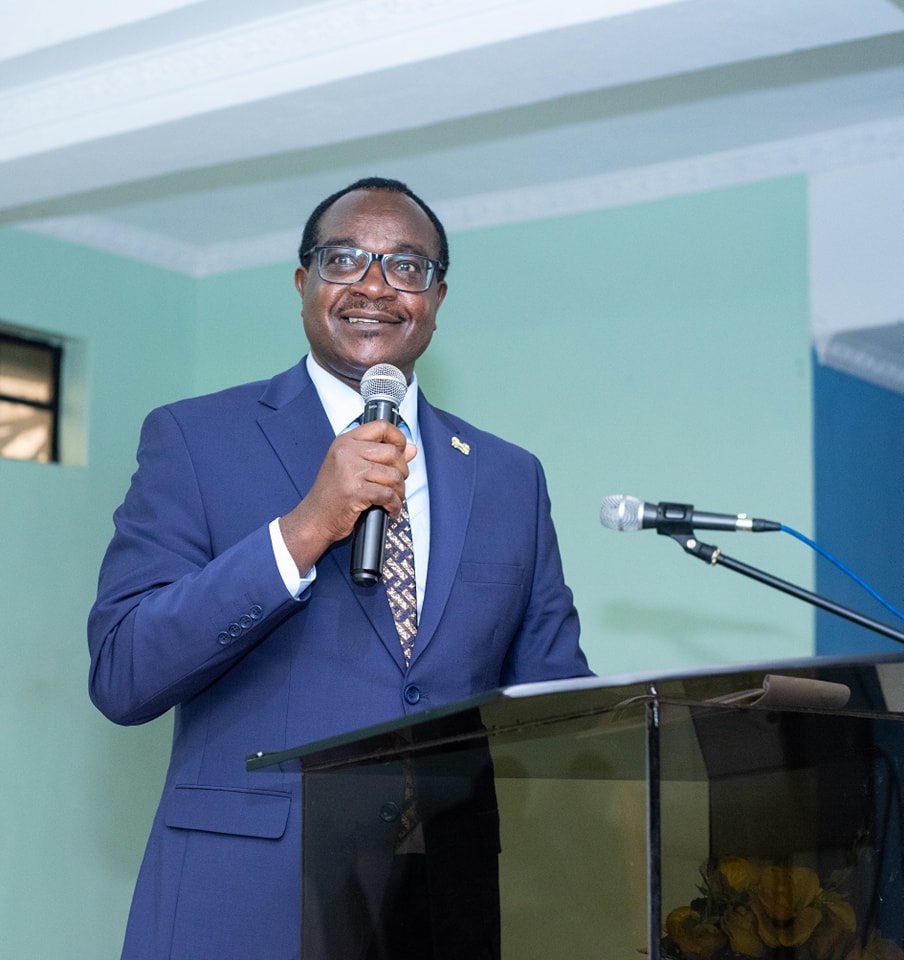𝐂𝐒 𝐎𝐠𝐚𝐦𝐛𝐚 announces the introduction of CBE as he 𝐥𝐞𝐚𝐝𝐬 𝐭𝐡𝐞 𝐩𝐮𝐬𝐡 𝐟𝐨𝐫 𝐂𝐨𝐦𝐩𝐞𝐭𝐞𝐧𝐜𝐲-𝐁𝐚𝐬𝐞𝐝 𝐑𝐞𝐟𝐨𝐫𝐦s
The government has reaffirmed its dedication to Competency-Based Education (CBE), characterizing it as a transformative model that is central to the nation’s development agenda.
While speaking at the launch event at the Kenyatta International Convention Centre (KICC), Education CS Julius Migos Ogamba declared that CBE, which is also known as Elimu Thabiti, serves as the foundation for an inclusive, skills-based education system aimed at preparing learners for the challenges of the 21st century.
“Behind every education reform is a child whose aspirations are reliant on it. We are all in this together,” remarked Ogamba.
The CS further highlighted that the CBE model is founded on grassroots consultation and embodies the voices of communities throughout the country.
“Mathematics will henceforth be compulsory across all senior secondary school pathways,” stated the CS, adding that the technical team will collaborate closely with the Kenya Institute of Curriculum Development to facilitate its implementation.
In addition, Ogamba encouraged educators to adopt a novel approach to teaching: “We must transition away from rote learning (a method of memorizing information through repetition, rather than comprehending the underlying meaning or context).
Our emphasis is on dynamic, learner-centered methodologies that foster creativity, critical thinking, and problem-solving,” he added.
During his remarks, Basic Education PS Prof. Julius Bitok underlined that CBE constitutes not merely a modification of the Competency-Based Curriculum (CBC) but a comprehensive transformation of Kenya’s education ecosystem.
“We are no longer merely discussing curriculum; we are now executing a system-wide reform,” noted Prof. Bitok.
The PS highlighted insights garnered from consultations at the county level, highlighting Nakuru, where students demonstrated innovation and practical skills, showcasing the tangible effects of Competency-Based Education (CBE).
“This is not simply a curriculum transition; it signifies a national transformation, and the future of our children is contingent upon our collective progress along this journey, as CBE aligns with Vision 2030 and the Bottom-Up Economic Transformation Agenda,” he stated.
In response, Higher Education and Research PS Dr. Beatrice Inyangala asserted that CBE also revolutionizes teaching practices and learning environments.
“We must detach ourselves from teaching students to merely memorize. Instead, we should illustrate to them how to apply what they learn, and they will retain that knowledge,” she emphasized.
Dr. Inyangala underscored the significance of ongoing teacher retraining, active community engagement, and educational programs tailored to local contexts as vital elements for the effective implementation of the Competency-Based Education model.
Meanwhile, preparations for the national rollout are actively progressing. Universities, teacher training colleges, and curriculum development agencies are synchronizing their frameworks to accommodate the inaugural cohort of CBE learners anticipated to progress to university by 2029.
The Ministry is also devoted to reviewing the adult education curriculum to align with CBE principles, thereby ensuring that lifelong learning opportunities are both relevant and skills-oriented.
Furthermore, initiatives are in motion to enhance teacher retooling efforts, and to date, 291 teachers have received training, with plans for national expansion targeted for the upcoming months.
Concurrently, special needs education has been prioritized, with the government committing to the enhancement of infrastructure and learning resources.

